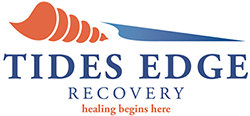Alcohol is almost universally present in American social culture. This makes it difficult for individuals to recognize when they or someone they know are abusing alcohol. But when individuals do seek treatment, they can identify the triggers and issues that lead them to alcohol abuse. For many, the first step is detox, which is best done with support from a facility like Tides Edge Detox.
Once detox is complete, individuals usually enter into an addiction treatment program to get at the source of their alcohol use disorder and learn ways to not just cope but ultimately overcome the disease. Once treatment concludes, sobriety can best be managed through alcohol relapse prevention and developing an effective aftercare plan.
Relapse is something that commonly occurs when taking the journey of recovery. It doesn’t mean that you have failed or that your journey is over; it simply means that you had a setback, an obstacle, or a stop along the way. To be more successful with the recovery from addiction, participate in Florida drug and alcohol detox programs.
Why Do People Relapse?
Addiction to alcohol changes your brain chemistry. Whether it is steady, long-term drinking to excess or binge drinking, these forms of alcohol abuse slowly create a dependency. Even after treatment and achieving sobriety, individuals will need to learn how to manage their alcohol addiction. Any kind of substance use disorder or addiction is a chronic condition.
Being able to identify triggers, those objects, actions, places, and persons who can cause a stress response that increases the craving to drink means individuals can come up with a relapse prevention plan. Relapse is a part of recovery. While many people believe that only absolute abstinence equates with sobriety, the truth of the matter is that relapse happens. What matters most is how individuals respond when this occurs.
Also, people relapse because they decide to quit abruptly without the aid of a rehab treatment program. They withdraw from whatever substance they were taking without medication-assisted treatment or a detox program. This causes them to have a much worse experience, therefore, leading them to relapse.
Finally, life can bring unexpected circumstances that may lead to relapsing. Maybe a person has done well for quite some time. Then a crisis occurs, and they turn back to drugs or alcohol.
3 Alcohol Relapse Prevention Strategies
Dealing with relapse is simple but not necessarily easy. The important thing to remember is to get help dealing with relapse. If you’ve fallen back into the path of alcohol abuse again, don’t delay seeking help. There is nothing to be ashamed of because this is a lifelong journey. You will learn from your experiences and become stronger through it all. Three relapse prevention techniques to consider include:
- HALT: This is stands for Hungry, Angry, Lonely, and Tired. Typically, cravings arise when one or more of these four traits are present. Thus, it’s necessary to be mindful of one’s physical and emotional needs and wellbeing.
- Support group: Perhaps one of the most effective ways to prevent relapse is through building and being a part of a supportive community. This is perhaps best done by being part of a 12-step program or group therapy.
- Self-care: While it may sound like a buzzword, self-care means being attentive to your needs. This most effectively takes the form of living a healthy lifestyle, including healthy eating and regular exercise or activity.
Seek Help When You Relapse at Tides Edge Detox
At Tides Edge, our caring staff is here to lead you back to the path of recovery. If you’ve slipped back into drugs or alcohol again, you won’t find any judgment from us —only help and compassion.
At our 60-bed treatment rehab, you will discover a broad range of treatment options to complement your healing journey. Some of these treatments include:
- Alcohol addiction rehab
- Adderall addiction rehab
- Benzo addiction detox
- Cocaine addiction rehab
- Heroin addiction rehab
- Opioid addiction rehab
Don’t wait to get the help you need. Now that you understand about dealing with relapse, you can overcome your problems by participating in treatment. Contact us at 866.723.3127, and we’ll get you back on the pathway again.









